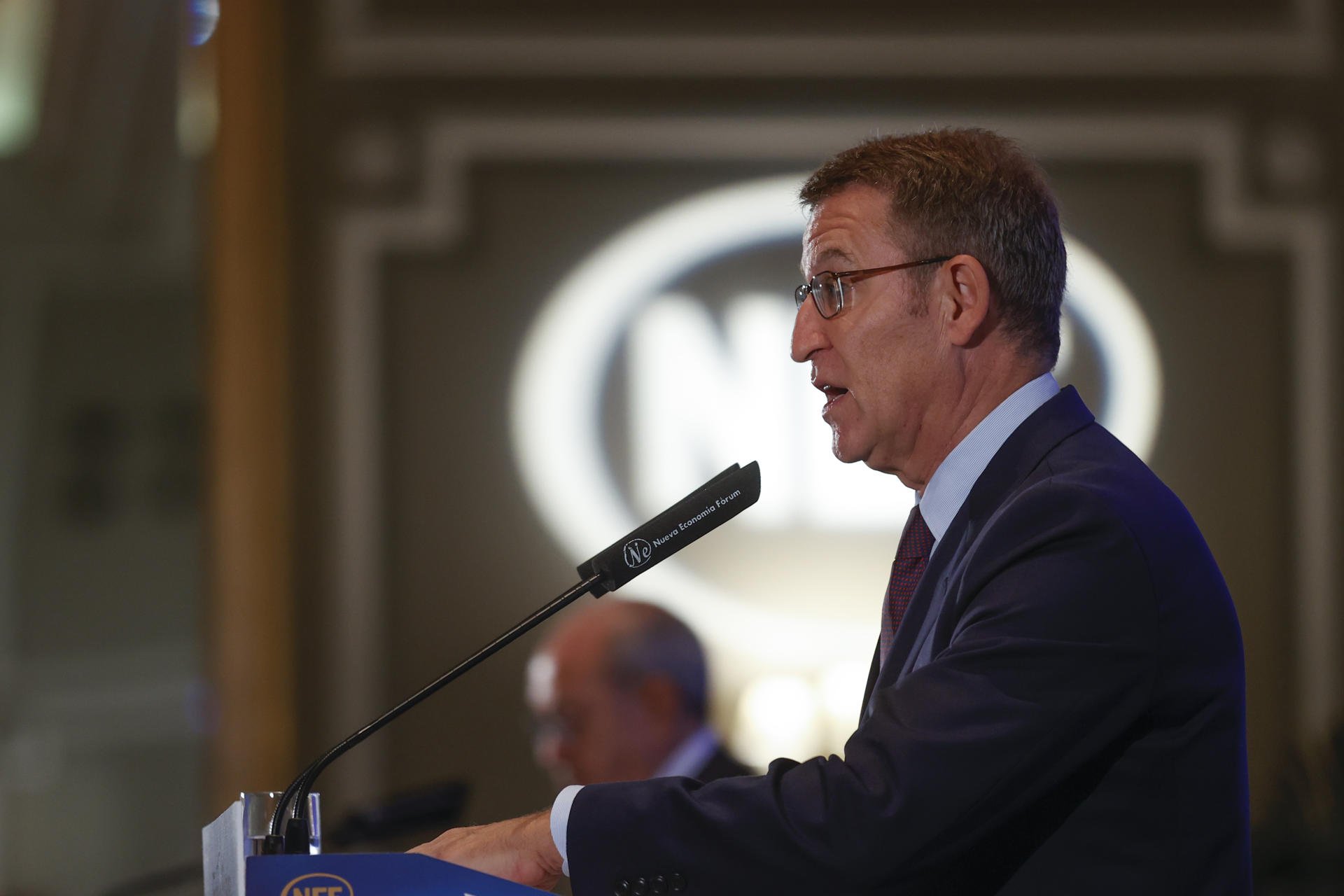The triple alliance between the Socialists (PSC), the Comuns and the People's Party (PP) in Barcelona was a state manoeuvre to avoid a 'greater evil' for Spain: a pro-independence mayor in the capital of Catalonia. This was confirmed this Monday by the PP leader, Alberto Núñez Feijóo, who had no problem in celebrating that the mayoralty of the Catalan capital is now in the hands of the Socialist Jaume Collboni. "Spain has won", he said at a breakfast meeting in Madrid, in which he asserted that the objective of his party has been "for Spain to return to the centre and once and for all break the politics of blocs in which they wanted to keep us all".
"We have done it everywhere, in Barcelona and in Vitoria [Basque Country] too, without following any other interests apart from a sense of state and without asking for anything in return to defend this sense of state," Feijóo said. In this same regard, he affirmed that the decision on the fate of the Barcelona city council began in Madrid. He explained that one of the first steps that the PP took the day after the municipal elections was to "talk with the PSOE" - the Spanish Socialists - to see what could be done in the Catalan capital. "We called their organizational secretary and told him that we were willing to facilitate a Socialist government as long as it did not have a sovereignist and populist party like the Comuns as a partner; but, surprisingly, they told us that they weren't managing that and that we had to talk to the PSC" - that is, the Catalan Socialists.
On this same question, the leader of the PP wanted to separate the issues and assure that the election of the Socialist candidate Collboni as mayor of Barcelona has nothing to do with the situation that the PSOE is experiencing in the Spanish state as a whole. Because Pedro Sánchez, unlike the new Barcelona mayor, "is willing to continue being prime minister with the votes of the independentists."
Feijóo's decalogue: bringing back sedition and judicial "independence"
At the same time, in this same morning conference, Alberto Núñez-Feijóo presented a decalogue of measures that he will adopt if after July 23rd he manages to reach the Moncloa government palace. He affirmed that one of his first steps will be to bring back the crime of sedition and increase the penalties for corruption, in addition to presenting the Congress of Deputies with a new law on the General Council of the Judiciary (CGPJ) to guarantee the "independence" of judges and prosecutors. He also promised to review "one by one" the laws passed under the mandate of Pedro Sánchez in which the Basque pro-independence party EH Bildu's vote has been decisive.
Second, he promised a reduction in the number of ministries and an audit of the administration. He also put a tax reduction on the table, starting with personal income tax for medium and low incomes. Feijóo also affirmed that "the fight for equality and against gender violence" will be "a transversal policy and far from partisanship." He also promised that he will convene a conference of autonomous community presidents to create a work schedule on European funds, policies over water and regional financing, and will make the Spanish presidency of the European Council, which begins in July, as a state priority.

